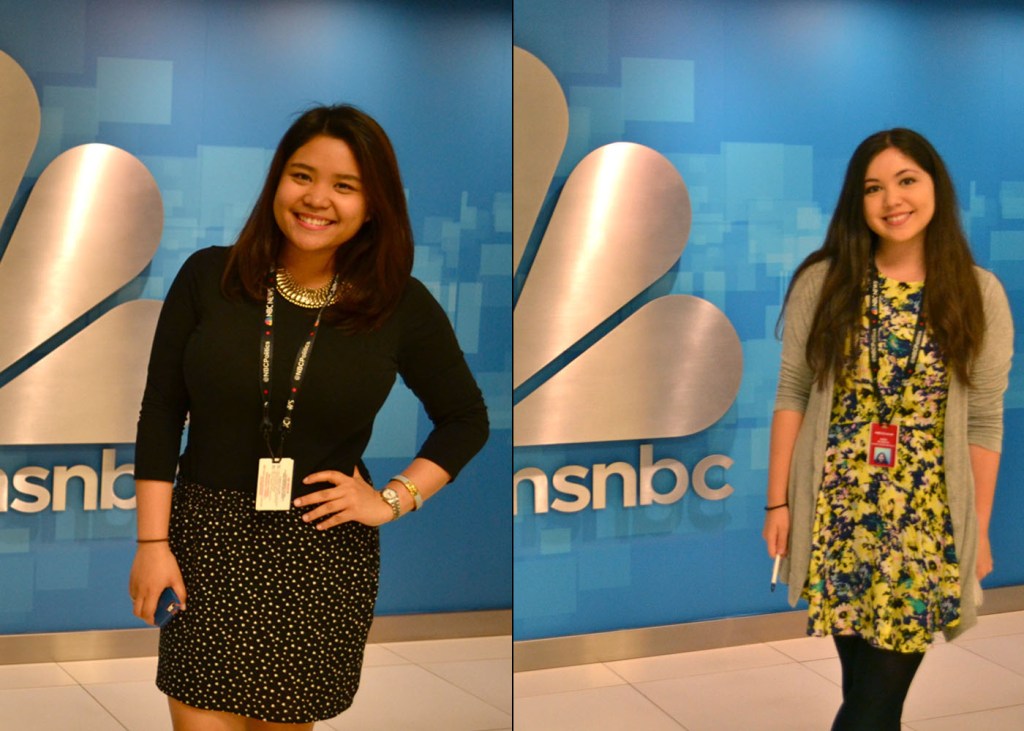In the newsroom, witnessing history

In the television news industry, nothing exemplifies controlled chaos like the production control room. There, producers and staff work feverishly behind the scenes to present high-quality telecasts to millions of viewers.
This past spring, two Northeastern University journalism students, Emma McGrath, AMD’17, and Angel Feliciano, AMD’15, had front row seats to the “newsroom madness” while working on co-ops at NBC News’ Special Reports in New York City.
“There are so many moving parts,” McGrath, a second-year journalism major, explained of the production process. “What America sees on television is a pretty seamless newscast and it’s incredible.”
The pair worked on the network’s coverage of several major news stories, including President Barack Obama’s State of the Union address, the disappearance of Malaysia Airlines Flight 370, and the 70th anniversary of D-Day.
Their duties included conducting research, assisting producers, scheduling on-air talent, and acquiring thousands of press credentials for their reporters.
“It was exciting to be part of that environment,” said Feliciano, a fourth-year journalism major. “I loved working in a newsroom because I liked seeing history unfold in front of me, and to be able to share that with people is one of the reasons I love journalism.”
Co-op is the cornerstone of Northeastern’s experiential learning model, through which students get real-world experience working in a professional setting for up to six months. McGrath and Feliciano had different reasons for applying to work at 30 Rockefeller Center. Feliciano knew from a young age that she wanted to work in broadcast journalism and had already completed a co-op at Boston’s NBC affiliate WHDH. McGrath, who had previously focused on print journalism, wanted to expand her understanding of the news business.
“This was me taking a jump in the deep end of the pool,” McGrath said. “But I would have been crazy not to take this opportunity because it was a chance to try something new and that’s what co-op is all about.”
Both McGrath and Feliciano noted that the lessons they had learned in their journalism classes at Northeastern—from the importance of fact checking to the benefits of persistent reporting—had prepared them for working on one of the news industry’s biggest stages.
“Being in this industry is tough work,” Feliciano said. “But my professors laid out the foundation of what journalism is before I started co-op. Most importantly, I learned how to stay determined and keep persevering.”




